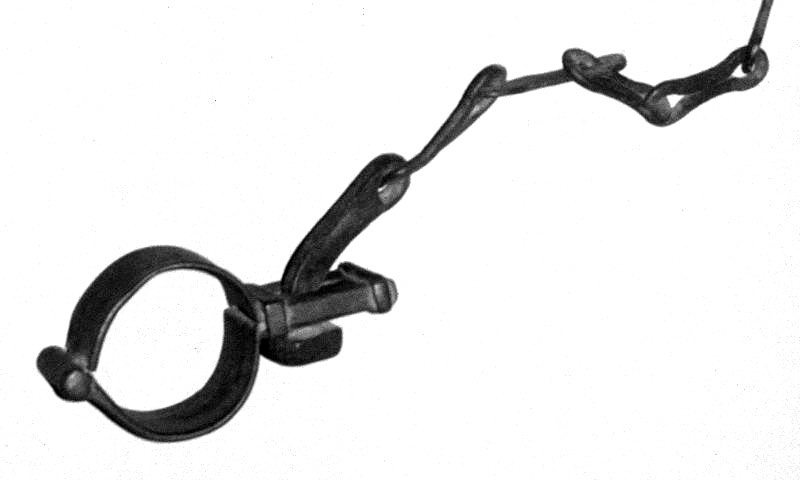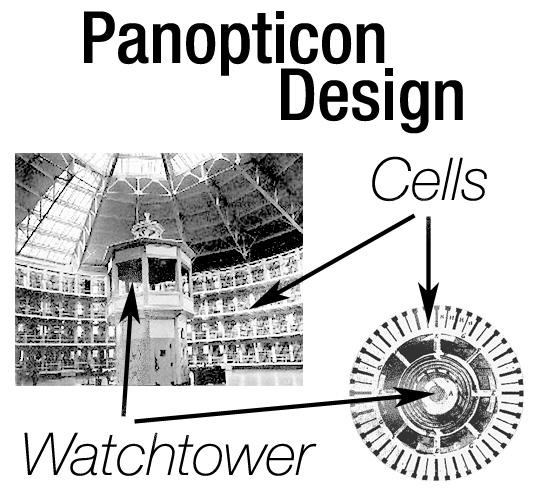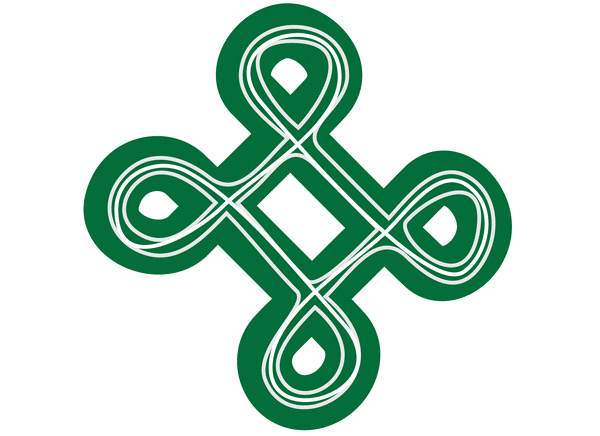Augmented Reality Cinema [thanks @farman].
Augmented Reality Cinema [thanks @farman].
 In a post titled “Why Journals are the Dinosaurs of Academia,” I recently considered whether traditional journals may, increasingly, be serving to hinder the communication of ideas, rather than optimally facilitating such exchanges. I argued two main points: 1.) We need to get beyond the notion that the mere fact that journals is printed makes it somehow more legitimate than digital-only journals. 2.) In the age of the Internet, conventional articles may no longer be the most efficient way to communicate some ideas (which was the original justification for making journals the centerpiece of disciplinary discourses).
In a post titled “Why Journals are the Dinosaurs of Academia,” I recently considered whether traditional journals may, increasingly, be serving to hinder the communication of ideas, rather than optimally facilitating such exchanges. I argued two main points: 1.) We need to get beyond the notion that the mere fact that journals is printed makes it somehow more legitimate than digital-only journals. 2.) In the age of the Internet, conventional articles may no longer be the most efficient way to communicate some ideas (which was the original justification for making journals the centerpiece of disciplinary discourses).
Over the past few days, Twitter has been abuzz with academics discussing another, related issue: Whether disciplinary discourses are better facilitated by non-profit, open-access journals or proprietary, pay-walled journals. I have archived that discussion below and will follow up with my own thoughts later in the week. more...
 Larry Sanger, the co-founder of Wikipedia, wrote a wonderful piece on the rise of a new geek anti-intellectualism. The essay sparked much discussion and Sanger has done a terrific job responding to comments and even offering a thoughtful follow-up piece. However, I would like to write a short critique on a couple of points that have yet to be addressed.
Larry Sanger, the co-founder of Wikipedia, wrote a wonderful piece on the rise of a new geek anti-intellectualism. The essay sparked much discussion and Sanger has done a terrific job responding to comments and even offering a thoughtful follow-up piece. However, I would like to write a short critique on a couple of points that have yet to be addressed.

First, I have to mention that contemporary anti-intellectualism was really my first academic interest, spurred in 2000 when I heard that Al Gore lost debates to George W. Bush because Gore “sounded too smart.” Hyper-focused on epistemology (the philosophy of knowledge) at the time, it was learning about the differences between Wikipedia co-founders Larry Sanger and Jimmy Wales that first got me interested in technology as a topic of research. Sanger, himself having an epistemology background, wanted Wikipedia to have a component of expertism on the site. When that was rejected he left and started the Citizendium project. At war are two epistemologies: one based in populism and the other expertism (though, this conceptualization is far too simplistic, it will have to do for this short post). more...
This essay, like the one I posted last month on faux-vintage photography, is me hashing out ideas as part of my larger dissertation project on self-documentation and social media. Part II will argue that the media also overstate how public we have become, sensationalizing the issue to the point that the stigma associated with online imperfections erodes more slowly.  It is no stretch to claim that we have become more public with social media. By “public” I mean that we are posting (1) more pieces information about ourselves online in (2) new ways (see the Zuckerberg Law of Information sharing), and are doing so more (3) honestly than ever before. We are connected to the web more often, especially given the rise of smart phones, and new layers of information are being invented, such as “checking in” geographically. And gone are the days when you could be anyone you want to be online; today we know that online activities are augmented by the physical world. People are mostly using their real names on Facebook and nearly everything one does there has everything to do with the offline world.
It is no stretch to claim that we have become more public with social media. By “public” I mean that we are posting (1) more pieces information about ourselves online in (2) new ways (see the Zuckerberg Law of Information sharing), and are doing so more (3) honestly than ever before. We are connected to the web more often, especially given the rise of smart phones, and new layers of information are being invented, such as “checking in” geographically. And gone are the days when you could be anyone you want to be online; today we know that online activities are augmented by the physical world. People are mostly using their real names on Facebook and nearly everything one does there has everything to do with the offline world.
But we are not as public as this suggests. We need a balance to this so-called triumph of publicity and death of anonymity (as the New York Times and Zygmunt Bauman recently declared). “Publicity” on social media needs to be understood fundamentally as an act rife also with its conceptual opposite: creativity and concealment. And I am not talking just about those who use false identities on blogs (see Amina) and pseudonyms on Facebook, those with super-strict privacy settings or those who only post a selective part of their multiple identities (though, I am talking about these folks, too). My point applies to even the biggest oversharers who intimately document their lives in granular detail.
I’ll describe below how each instance of sharing online is done so creatively instead of as simple truth-telling, but will start first by discussing how each new piece of information effectively conceals as much as it reveals. more...
Last winter, Cyborgology contributor David Banks described the Pentagon’s Gorgon Stare system—a nine-camera flying drone that can stay airborne for weeks at a time—as a “panopticon in the clouds.” Like Jeremy Bentham’s infamous prison design (later adopted as a metaphor for all of contemporary society by Michel Foucault), the deployment of surveillance drones serves, in part, to limit the actions of militants by creating a perception that the US government was perpetually watching. Banks argues that, ultimately, these sci-fi-esque surveillance regimes were made possible by recent refinements in automated data management that originally had mundane applications, such as helping spectators follow activity on the sports pitch or producing individualized film recommendations.

There is, thus, a double-sense in which the panopticon has entered the cloud(s). Surveillance devices are not only omnipresent—flying through the air—but these devices are also linked remotely to command and control centers—large, centralized databases that store and process the information produced in surveillance operations. Thus, unlike the historic spy operations conducted by manned U2 spy plans, drones never have to physically return home for data processing; instead, this information is transmitted in real-time. more...
On June 17th, an Obama 2012 campaign staffer made a post explaining that Obama’s Twitter and Facebook presence would be handled differently going forward. As fellow Cyborgology editor Nathan Jurgenson recently discussed, Obama’s posts and updates have, up until now, been ghostwritten—leading Jurgenson to conclude that “Obama-as-president has thus far been a Web 1.0 leader” and, thus, to ask “when will we see a Web 2.0, social media president?” Obama’s use of social media has been in sharp contrast to other nationally-recognized politicians, including former vice-presidential candidate Sarah Palin, whose tweets appear to be individually-authored, spontaneous, and personal, making them appear more authentic and more consistent with the norms of other Twitter users (spelling errors and all). The president is now getting into the game by authoring his own tweets.
The campaign update, titled, “A New Approach to Facebook and Twitter,” states:
Obama for America staff will now be managing both accounts, posting daily updates from the campaign trail, from Washington, and everywhere in between. You’ll be hearing from President Obama regularly, too; on Twitter, tweets from the President will be signed “-BO.”
 There is an important space between old and new media. This is the grey area between (1) the top-down gatekeeping of old media that separates producers and consumers of content and (2) the bottom-up nature of new, social media where producers and consumers come from the same pool (i.e., they are prosumers).
There is an important space between old and new media. This is the grey area between (1) the top-down gatekeeping of old media that separates producers and consumers of content and (2) the bottom-up nature of new, social media where producers and consumers come from the same pool (i.e., they are prosumers).
And in the middle are projects like Global Voices, what might be called curatorial media: where content is produced by the many in a social way from the bottom-up and is then mediated, filtered or curated by some old-media-like gatekeeper.
The current protests in Syria can serve as an important example of how curatorial media works. Especially because foreign journalists have been banned from the country, creating a dearth of information for old media. Alternatively, more...

In my Theorizing the Web presentation last April, I gave a presentation entitled Practical Cyborg Theory: Discovering a Metric for the Emancipatory Potential of Technology. I wanted to develop a cyborg theory that helps us understand the emancipatory potential of a given technology or technological system. My formal hypothesis was an addendum to Haraway’s definition of a cyborg in the Cyborg Manifesto:
A cyborg is a cybernetic organism, a hybrid of machine and organism, who’s existence and emancipatory potential is constructed as a function of the temporal and social environment within which it operates.
 As the 2012 presidential race ever so slowly gains momentum it remains clear that social media will be influencing elections for a long time to come. In the long run, does the shift towards social media campaigning change who is perceived to be a legitimate candidate? If so, social media might change who wins elections and therefore changes how we are governed. Avoiding [for now] the issue of whether social media has inherent tendencies towards the left or right, what I want to ask is: opposed to old media, does new media benefit political underdogs and outsiders?
As the 2012 presidential race ever so slowly gains momentum it remains clear that social media will be influencing elections for a long time to come. In the long run, does the shift towards social media campaigning change who is perceived to be a legitimate candidate? If so, social media might change who wins elections and therefore changes how we are governed. Avoiding [for now] the issue of whether social media has inherent tendencies towards the left or right, what I want to ask is: opposed to old media, does new media benefit political underdogs and outsiders?
As Republicans announce presidential bids on Twitter and Obama gets friendly with Zuckerberg and Facebook, it seems that the presidential campaign has found itself augmented by and reliant upon social media tools; some of the very same tools many of us use, like Facebook, Twitter, YouTube and so on. Part of their popularity is that one can view and be viewed by people from all over the world in an instant and for no cost. It does not cost money to publish this post or to tweet about it later on. Social media campaigning is also relatively cheap; indeed, often times free. Alternatively, print advertising is expensive because space is scarce and the scarcity of broadcast time makes television and radio too costly for underdogs and outsiders to fairly compete. However, when we exchange atoms for bits we enter into a world of abundance, a world where broadcasting a message quickly and globally becomes cheap and easy.
This cheaper social-media campaign style may remove or at least lesson more...
Already, we are being inundated with stories about the how social media will shape the 2012 campaigns (and how Facebook may, or may not, transform the Presidency itself). Two facts, however, limit the potential role social media will, ultimately, play in the 2012 election:
1.) Young people are heavy users of social media, but are unlikely to vote.
2.) Older folks are likely to vote, but are much less involved in social media.
Thus, the reality is that social media is best at reaching those least likely votes. In its 2008 post-election analysis, Pew found that while 72% of Americans 18-29 year of age were using the Internet for political activities or information gathering (and 49% used social-networking sites for these purposes), only 22% of Americans 65+ years of age engaged in such activities on the Internet (and a mere 2% did so on social media).

At the same time, young adults are roughly 33% less likely to vote than their grandparents. more...